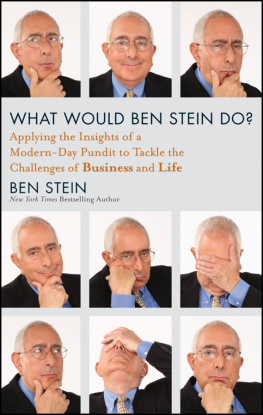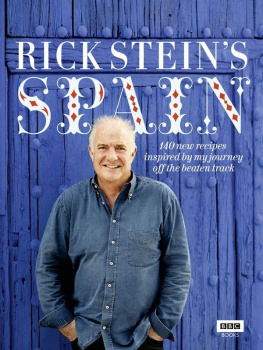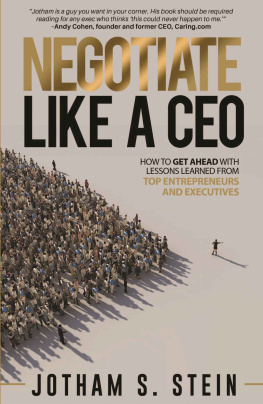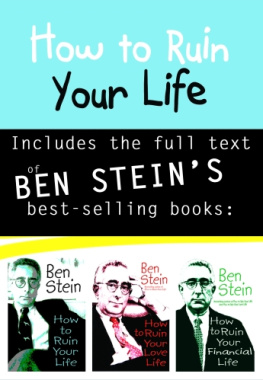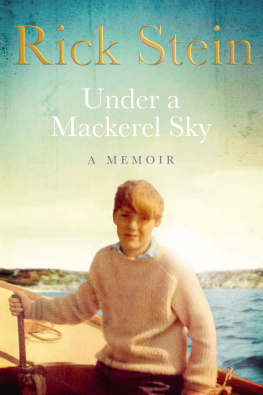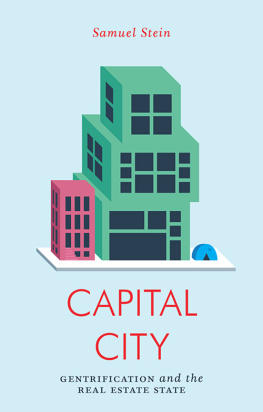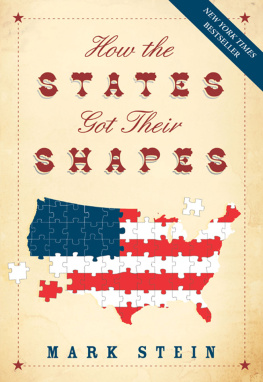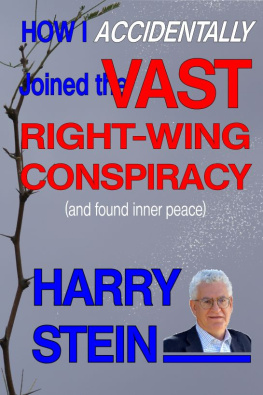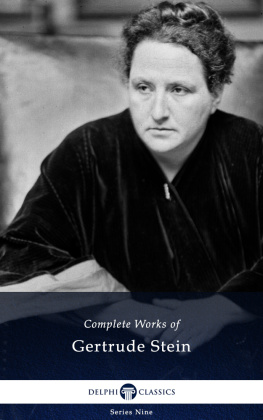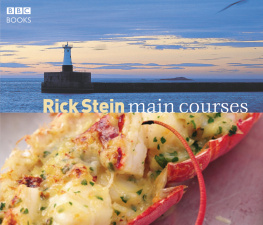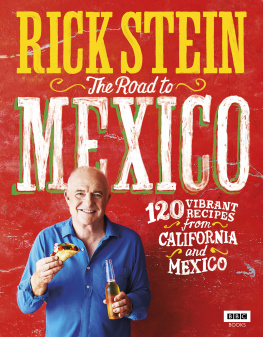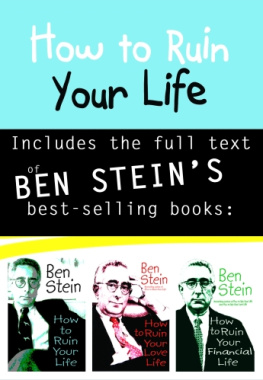Copyright 2011 by Ben Stein. All rights reserved.
Published by John Wiley & Sons, Inc., Hoboken, New Jersey.
Published simultaneously in Canada.
No part of this publication may be reproduced, stored in a retrieval system, or transmitted in any form or by any means, electronic, mechanical, photocopying, recording, scanning, or otherwise, except as permitted under Section 107 or 108 of the 1976 United States Copyright Act, without either the prior written permission of the Publisher, or authorization through payment of the appropriate percopy fee to the Copyright Clearance Center, Inc., 222 Rosewood Drive, Danvers, MA 01923, (978) 7508400, fax (978) 6468600, or on the web at www.copyright.com . Requests to the Publisher for permission should be addressed to the Permissions Department, John Wiley & Sons, Inc., 111 River Street, Hoboken, NJ 07030, (201) 7486011, fax (201) 7486008, or online at http://www.wiley.com/go/permissions .
Limit of Liability/Disclaimer of Warranty: While the publisher and author have used their best efforts in preparing this book, they make no representations or warranties with respect to the accuracy or completeness of the contents of this book and specifically disclaim any implied warranties of merchantability or fitness for a particular purpose. No warranty may be created or extended by sales representatives or written sales materials. The advice and strategies contained herein may not be suitable for your situation. You should consult with a professional where appropriate. Neither the publisher nor author shall be liable for any loss of profit or any other commercial damages, including but not limited to special, incidental, consequential, or other damages.
For general information on our other products and services or for technical support, please contact our Customer Care Department within the United States at (800) 7622974, outside the United States at (317) 5723993 or fax (317) 5724002.
Wiley publishes in a variety of print and electronic formats and by print-on-demand. Some material included with standard print versions of this book may not be included in e-books or in print-on-demand. If this book refers to media such as a CD or DVD that is not included in the version you purchased, you may download this material at http://booksupport.wiley.com . For more information about Wiley products, visit www.wiley.com.
Library of Congress CataloginginPublication Data:
Stein, Benjamin, 1944
What would Ben Stein do?: applying the insights of a modernday pundit to tackle the challenges of business and life/Ben Stein.
p. cm.
Includes index.
ISBN: 9781118038178 (acidfree paper)
ISBN: 9781118173527 (ebk)
ISBN: 9781118173503 (ebk)
ISBN: 9781118173510 (ebk)
1.Life skillsHandbook, manuals, etc.2.Conduct of lifeMiscellanea.I.Title.
HQ2037.S73 2011
646.7dc232011029293
10987654321
Chapter 1
Marriage: A Big, Big Deal
For most people in a free society who decide to get married, the most important factors in their lives are who they marry and how the marriage works.
Life is difficult. Out there in the world of commerce or agriculture or law or medicine or bureaucracy or the military, the individual is merely a cog in the machine. Expected to produce so many widgets, attend so many meetings, file so many income tax returns that the way he feels, the kind of mood he's in, all of that is extremely secondary to what he (or she) produces. What his or her output is for the production of the almighty dollar or the almighty spreadsheet is what counts in the real world outside the home. This means that the outside world is cutting you down to size (as the song goes) a fair amount of time. It leaves you feeling like your life is a routine, like you're a number, a brick in the wall (to quote another song). Youas a person, as an individualdo not count for a lot.
Bear in mind, there are exceptions. Some workplaces make you feel good about yourself and care about you as a soulful human being. But as far as I have been able to tell, these kind of professional environments are in the minority. It is great if you can get into one of them, but it's not a standard part of the workday to make the worker feel good.
Shelter from the Storm...or Not
However, if your home is a warm, cozy place with a warm, cozy spouse, you have a fortress against the pressures, anger, and cold of the outside world. This is no small thing. If your home is built upon the rock of love and understanding and caring, you have a shelter from the storm. (Forgive me, but I cannot stop myself from paraphrasing songs. Popular music is a major part of my life.)
To be sure, and I don't want to kid you about this, as many, many homes are not warm, cozy places. Instead there are many homes that are Roach Motels of anger, sarcasm, an absence of love, and constant fear of explosions of rage. Still other homes are poisoned pools of estrangement and deviousness.
How do you make sure you have the kind of home that works as a fortress and a Sleep Number bed to keep you comfy all of the time, no matter how badly Mister or Missus Recession blows at the door? How do you make sure you have a home in which you feel protected, and not threatened or bored or mystified by what is going on in there? How do you build that happy home you want?
There Are Two Major Ways
Making the right decisions about who you marry.
Acting decently and lovingly as a spouse yourself.
These might sound simple. They are in fact incredibly difficult. Let's first take a closer look at making the right decision.
Chapter 2
Character Is Your Most
Important Product, and Work
Is a Life or Death Matter
Basically, choosing a mate of good character is what it's all about in marriage, as in friendships. One immense part of this is that the man or woman in whom you are interested in must be solvent. This does not mean rich; however, it almost always means being employed. One of the most ready ways to discover if a man or woman (a single one, at that) is of good character is whether or not he or she is gainfully employed. If he or she is not employedis not going off to work each day to earn a purposeful dollaryou generally do not want to marry him (or her). Now I know what you're thinking. You're thinking, That surely does not apply in a bad recession, such as we are having right now2011as you are writing this, does it, Benjy?
Yes, I am afraid it still applies. Of course we know that many fine men and women have been laid off and have lost their jobs through no fault of their own. I am well aware of that and my heart breaks for those people. My own dear grandfather was unemployed for many years during the Great Depression; yet he was a fine man. But that was a Great Depression where there simply was no work to be found. And, as soon as there was any work at all to be had, even difficult work, below the status he had been used to, he took it. We are not in a Great Depression now, and I pray we never will be again. We are in a time when work is exceptionally hard to come by for many people in many areasbut there is still work and in many areas there are labor shortages. (Think any of the major oil and gas and non-ferrous metals extraction states. Think Washington, DC, and environs. Think of the major agricultural regions. Think anywhere the would-be worker is willing to look day and night for a job and take what's available.)
My experienceand I could be wrongis that if a man or woman really throws himself into it, he or she will find a job, even if it's not the job of his or her dreams.
I keep thinking of my wife's manicurist, who came here from the Far East, could barely speak English, and soon had three jobs keeping her busy around the clock. I keep thinking of my daughter-in-law, an East Indian woman who came to Los Angeles from South Carolina and simply walked her feet raw looking for a job and found one.

